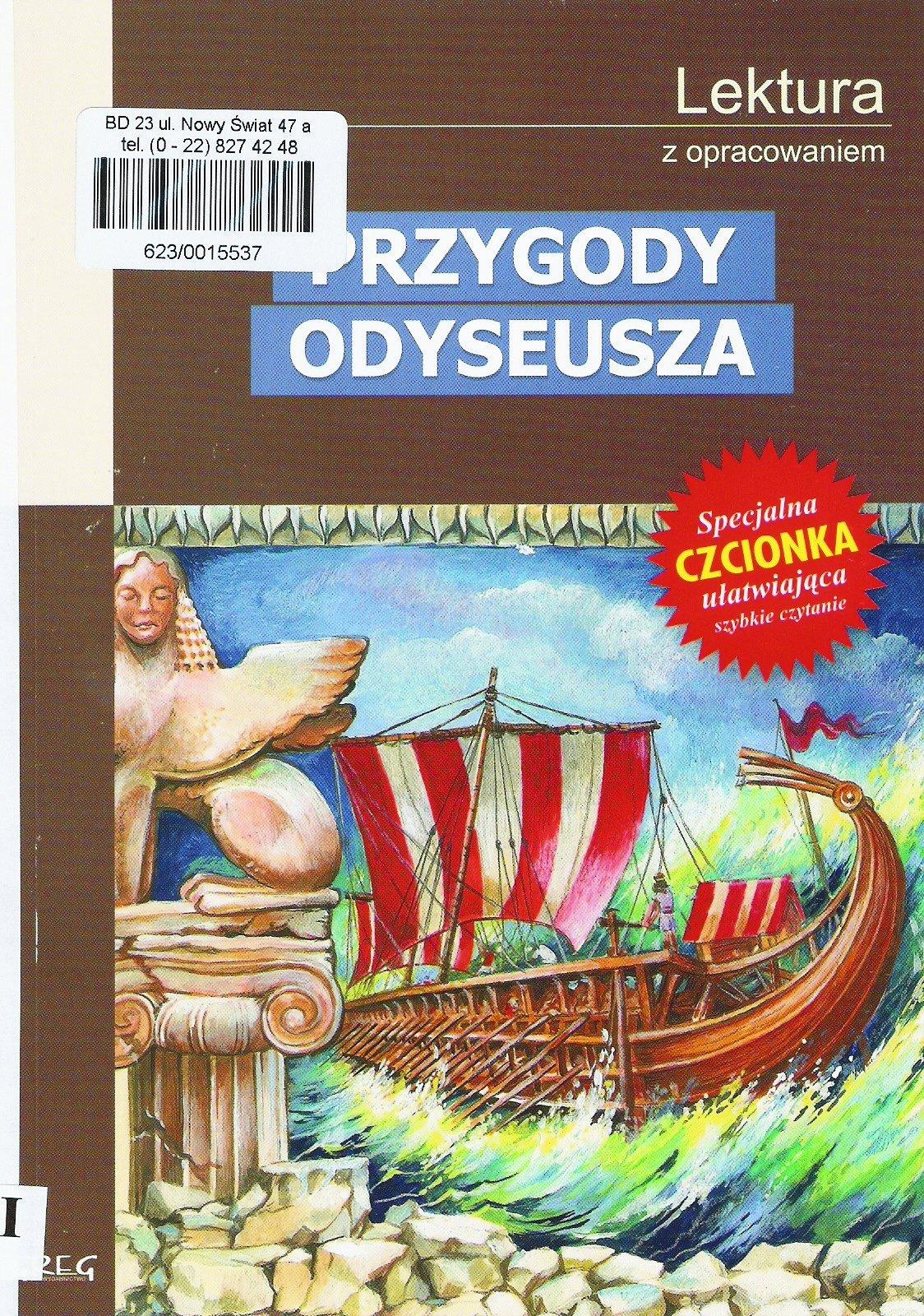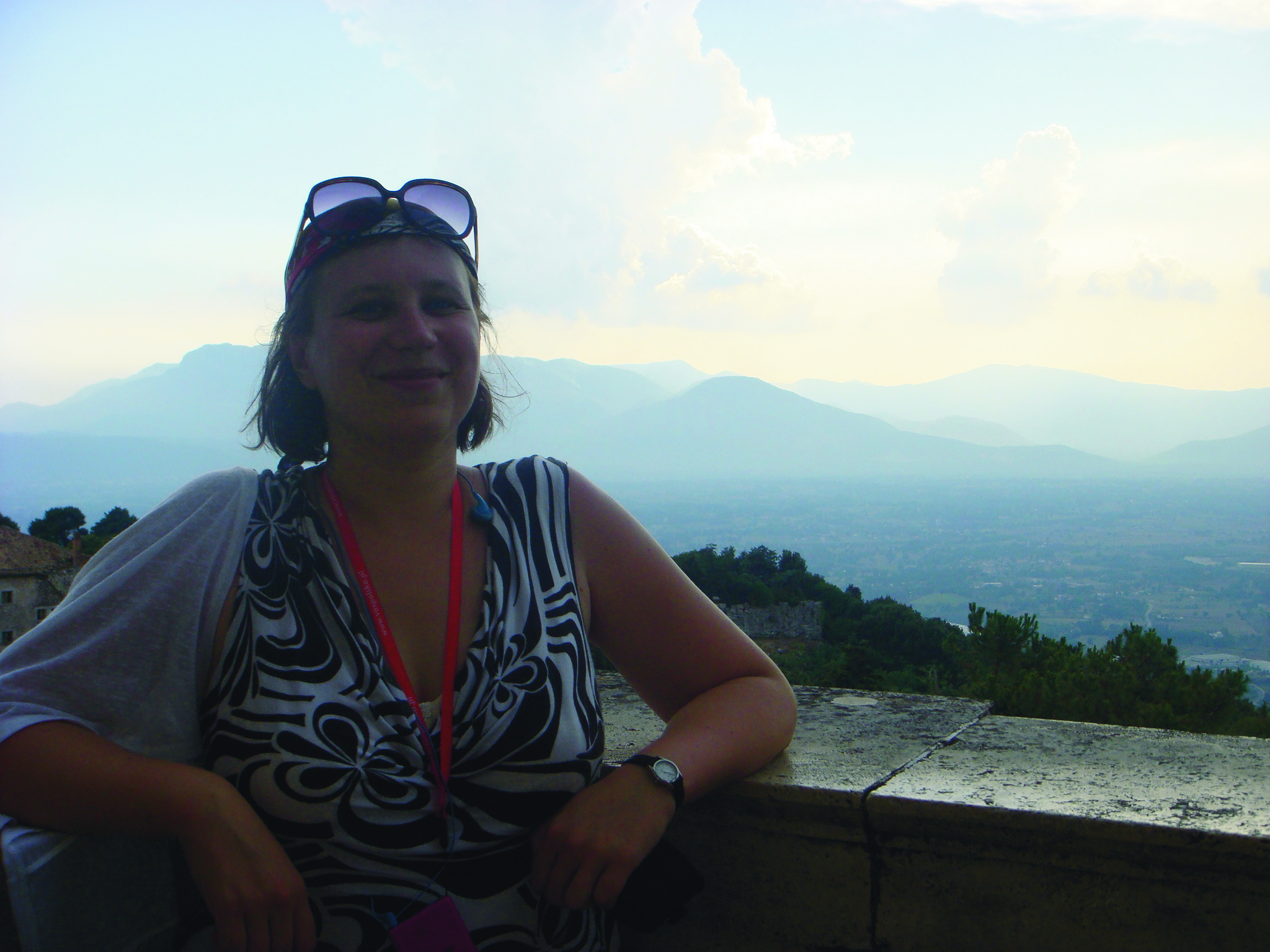Title of the work
Country of the First Edition
Country/countries of popularity
Original Language
First Edition Date
First Edition Details
Barbara Ludwiczak, Przygody Odyseusza. Kraków: GREG, 2010, 101 pp.
ISBN
Genre
Adaptation of classical texts*
Target Audience
Children (school children)
Cover

Courtesy of Wydawnictwo Greg, the publisher.
Author of the Entry:
Summary: Konrad Tymoteusz Szczęsny, University of Warsaw, k.t.szczesny@gmail.com
Analysis: Hanna Paulouskaya, University of Warsaw, hannapa@al.uw.edu.pl
Peer-reviewer of the Entry:
Katarzyna Marciniak, University of Warsaw, kamar@al.uw.edu.pl
Elżbieta Olechowska, University of Warsaw, elzbieta.olechowska@gmail.com

Photograph courtesy of the Author.
Barbara Ludwiczak
, b. 1980
(Author)
Born in Tarnów, on Halloween of 1980; writer and philologist. Made her debut in 2002 with a short story Teodycea [Theodicy] in “Science Fiction” monthly magazine. After studies in Classics at the Jagiellonian University (graduated in 2005) she taught Latin and Culture in secondary school and college. Currently she works in Zakłady Mechaniczne “Tarnów” [Mechanical Plant “Tarnów”]. Since 2008 she has collaborated with the publishing house GREG, first as the author of Mitologia. Wierzenia Greków i Rzymian [Mythology. Beliefs of the Greeks and Romans], 2008, a book about ancient myths and legends, then, in producing an adaptation of Homer: Przygody Odyseusza [The Adventures of Odysseus], 2010, retelling stories of Iliad and Odyssey. Co-translator (with Marta Kędroń) of Mark Twain’s The Adventures of Tom Sawyer and Adam and Eve’s Diaries. History, philosophy, music, art and various literary genres such as science fiction, space opera, fantasy are among her interests along with many others.
Bio kindly provided by the Author.
Summary
Based on: Katarzyna Marciniak, Elżbieta Olechowska, Joanna Kłos, Michał Kucharski (eds.), Polish Literature for Children & Young Adults Inspired by Classical Antiquity: A Catalogue, Faculty of “Artes Liberales”, Warsaw: University of Warsaw, 2013, 444 pp.
Adaptation of the Odyssey, structured as a school text with description of main characters and topics. Odysseus journeys home after the fall of Troy. The Greek hero is trying to get back to his homeland, Ithaca, after the ten-year Trojan War. Unfortunately, because he blinded Cyclops Polyphemus, the son of Poseidon, the god of the sea cursed Odysseus forcing him to wander the sea for ten years, during which time he was fated to lose all his crew and to return home aided by others. After a long journey and many deadly adventures, he came back to Ithaca, but had to defeat the suitors whose aim was to persuade Penelope to marry one of them, and while doing so to fully enjoy hospitality of Odysseus household. He vanquished all of the suitors and the family of Odysseus, Penelope and their son Telemachus could finally live happily ever after (as distinct from the original ending in Homer’s Odyssey) – there is a short mention about Odysseus’ second expedition to appease Poseidon, but at the end of the story he returns for the second time and lives with his wife and son until his death from the sea.
The book also includes elements based on the other Homeric epic, the Iliad: abduction of Helen, the ire of Achilles, the duels: Paris and Menelaus, Achilles and Hector; the embassy of Priam and the fall of Troy.
Analysis
The book is published as an educational aid, with many indexes, two synopses, the use of bold text and marginalia, etc. Although some research issues are referred to (for example, the Homeric question, p. 76), only summary answers are provided and interpretations, and contexts are limited. In her comments, Renata Sołtys, the book’s editor, states that Ludwiczak followed the model of Jan Parandowski in his 1953 prose translation of the Odyssey (p. 76).
Ludwiczak’s text is written in a simple and concise style and may encourage the reader to reach for the original.
Further Reading
Parandowski, Jan, Mitologia. Wierzenia i podania Greków i Rzymian, Poznań: Wydawnictwo Poznańskie, 1987 (ed. pr. 1924).
Parandowski, Jan, Przygody Odyseusza: według Odysei Homera opowiedział dla młodzieży Jan Parandowski. Lwów: Państwowe Wydawnictwo Książek Szkolnych, [1935].


